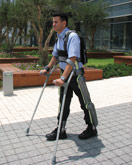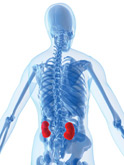×


We have detected your country as:
Please click here to go to the USA website or select another country from the dropdown list.

{image_1} A process to transmit medical images via cellular phones, developed by Professor Boris Rubinsky of Hebrew University in Jerusalem, has the potential to provide sophisticated radiological diagnoses and treatment to the majority of the world’s population lacking access to such technology. According to the World Health Organization, some three-quarters of the world’s population have no access to ultrasounds, X-rays, magnetic resonance images, and other medical imaging technology.
Continue Reading »
{image_1} It is a real-life nightmare scenario—honeybees are in trouble and, by extension, so is the human race! Last winter, over 36% of the US bee colonies collapsed, affecting honey production, affecting the one-third of all food production that requires pollination—from fruits and nuts, to the dairy and beef cows that feed on alfalfa. Now, Israeli–US company Beeologics is taking rapid measures to bring to market a proprietary anti-viral agent that promises to alleviate the effects of the virus strongly associated with Colony Collapse Disorder (CCD).
Continue Reading »
{image_1} After being paralyzed for the past 20 years, Radi Kaiof began to walk down a street in Israel to the sound of a dim mechanical hum. That was the sound of an electronic exoskeleton, developed by a small Israeli high-tech company, propelling the 41-year-old paraplegic down the street with a proud expression on his face.
Continue Reading »
{image_1} Wind power is a good energy alternative to free America from its oil dependence, but it could be made a lot more efficient. The wind can blow in gusts and spurts, it can tickle your ears or rip out trees, but the massive blades of today’s wind turbines can’t match the wind’s temperament: the rotors are fixed to spin at an even speed, maintaining a constant RPM (rounds per minute). The result is that a large amount of wasted energy just dissipates with the wind.
Continue Reading »
{image_1}Someday soon, the box of prescription medicine may take the form of tiny, credit card-sized inhalers that deliver the medication directly to your lungs. Thus envisions Ian Solomon, VP of business development at Aespironics, a company that has discovered a way to create small, cheap inhalers that deliver world-class results. Solomon explains that they can actually be ideal conveyors of other medications as well. “Pills are very common, but are not really the most effective types of drugs. They have to get through the intestinal tract and go across the body as a whole, generally to get somewhere else.” In contrast, medications delivered via inhaler travel through the lungs directly into the bloodstream.
Continue Reading »
{image_1}Chronic renal failure (CRF) is basically a death sentence for over 20 million sufferers. CRF eventually leads to end-stage renal disease, requiring costly dialysis or a kidney transplant, and dialysis survival rates are no longer than five or six years. Although transplants are the optimal course, they are limited by donor availability and extreme side effects. But, an Israeli company, Nephera, has developed a solution that could be “revolutionary.”
Continue Reading »
{image_1}There was a time when all you did was use one plug for your TV. Now, we are plagued with multiple cables for game consoles, DVDs, and other devices. Israeli company Amimon has developed a chipset solution that eliminates all those cables by separating the display section from the tuner section, requiring a single plug-in once again. Sharp, Sony, Samsung, Motorola, and Hitachi have rallied together with Amimon under the Wireless Home Digital Interface (WHDI). Sharp already has an Amimon wireless chip in a HDTV selling in Japan. The consortium also plans to include the chip in PCs, multimedia projectors, and game consoles.
Continue Reading »
{image_1} The US Food and Drug Administration is investigating a number of inquiries about parabens, the synthetic preservatives used widely in the cosmetics industry. Parabens ensure that creams, underarm deodorant, body sprays, shampoos, and toothpaste don’t rot before you get around to using them. The problem is that parabens (or alkyl esters of p-hydroxybenzoic acid) have been linked to a number of health concerns, cancer being one of them. Samples of women’s breast cancer tissue from the United Kingdom have been found to be loaded with parabens.
Continue Reading »
{image_1} Synthetic molecules designed by two Hebrew University of Jerusalem researchers have succeeded in reducing and even eliminating the growth of human malignant tissues in mice, while having no toxic effects on normal tissue.
Continue Reading »
{image_1} In April, G-Nius Unmanned Ground Systems unveiled to the press the Guardium UGV. Its goal is to “equip war fighters and law enforcers with systems that reduce combat friction and expedite decision cycles.” Straight from the Israeli Army operational laboratories, where it went through extensive operational trial and evaluation, the Guardium UGV revolutionizes the effectiveness of perimeter security.
Continue Reading »All logos and trademarks in this site are property of their respective owner. All other materials are property of Bridges for Peace. Copyright © 2025.
Website Site Design by J-Town Internet Services Ltd. - Based in Jerusalem and Serving the World.